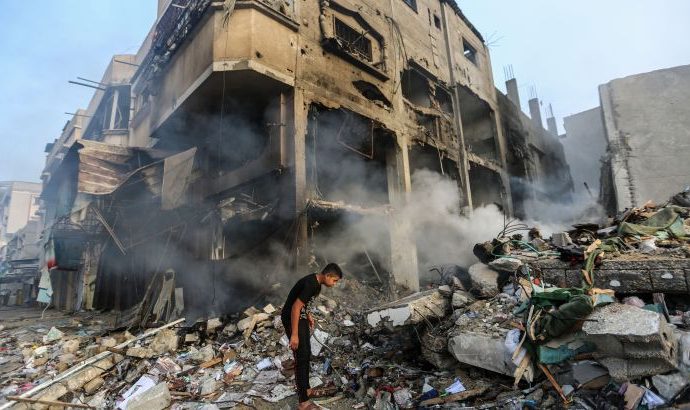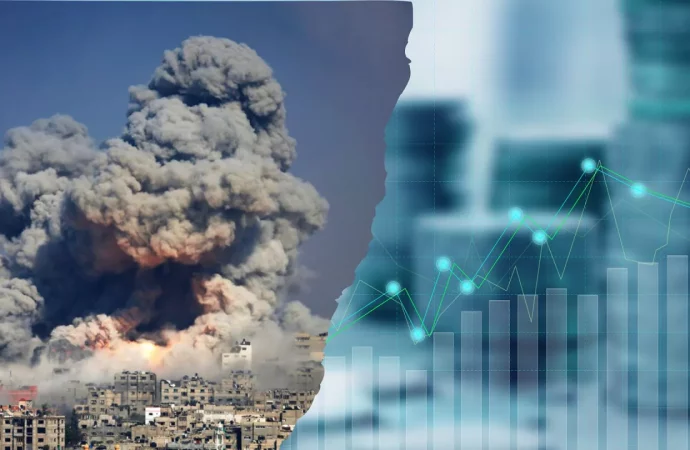Introduction: Despite the intensity and gravity of the Israel-Hamas conflict, the impact on the world economy is expected to be limited. This article explores the reasons behind the resilience of the global economy, Israel-Hamas war examines the localized nature of the conflict’s economic effects, and discusses potential implications for regional stability. Factors Contributing to Limited
Introduction:
Despite the intensity and gravity of the Israel-Hamas conflict, the impact on the world economy is expected to be limited. This article explores the reasons behind the resilience of the global economy, Israel-Hamas war examines the localized nature of the conflict’s economic effects, and discusses potential implications for regional stability.
Factors Contributing to Limited Impact:
-
Regional Focus: The Israel-Hamas conflict is primarily localized to the Middle East region, with limited direct economic ties to major global economic hubs. The majority of global trade and economic activities are not directly affected by the conflict.
-
Diversified Global Supply Chains: The world economy has evolved to rely on diversified global supply chains, reducing dependence on specific regions or countries. This diversification helps mitigate the potential disruptions caused by regional conflicts.
Localized Economic Effects:
-
Regional Tourism and Trade: The conflict may impact regional tourism and trade flows, particularly in the immediate vicinity. However, the overall impact on global tourism and trade is expected to be minimal, as these activities can be redirected to alternative destinations.
-
Energy Markets: The Middle East is a significant oil-producing region, and any escalation of the conflict could potentially disrupt oil supplies and impact energy markets. However, global energy markets have become more resilient and can absorb short-term disruptions through strategic reserves and alternative sources.

Image by: https://www. aljazeera.com
Implications for Regional Stability:
-
Humanitarian Crisis: The Israel-Hamas conflict has significant humanitarian implications, with the potential for displacement and loss of life. Addressing the humanitarian crisis is crucial for regional stability and long-term peace.
-
Geopolitical Risks: The conflict highlights the ongoing geopolitical risks in the Middle East. While the direct economic impact may be limited, the potential for broader regional instability and geopolitical tensions remains a concern.
Conclusion:
While the Israel-Hamas conflict carries significant humanitarian and geopolitical implications, its impact on the world economy is expected to be limited. The global economy’s resilience, diversified supply chains, and localized nature of economic effects contribute to this limited impact. However, addressing the humanitarian crisis and promoting regional stability remain crucial for long-term peace and stability in the Middle East.

















Leave a Comment
Your email address will not be published. Required fields are marked with *